
by Eric Burnham | Mar 12, 2021 | From the Inside
We live in extremely hard times. The last year was certainly one of the more daunting of my life. The theme of 2020 was “If it can be shaken, it will be shaken.” And the theme of 2021 may be “transition.” Yet, whether or not 2021 turns out to be a year of growth depends greatly upon perspective. Where you stand usually depends on where you sit. Perspective can become difficult to apprehend amongst excessive noise. Allow me to explain.
In March of 2020, the Education Department was shut down because of a really aggressive outbreak of influenza here at E.O.C.I. Finally back to work on June 5, and then the first cases of Covid-19 are detected at the prison, on my unit. My housing unit goes on quarantine for what turns out to be over 60 days. By the time my unit comes off of quarantine, we had all contracted the virus, myself included, and although two men died as a result, the majority of us recovered fairly well. However, the coronavirus outbreak had become so widespread at E.O.C.I. by that time that the Education Department had been shut down until further notice.
In September, my job, visiting, and virtually all recreational activities had been shut down for 6 months. Football season began, and I started playing fantasy football with some guys on my unit. That turned out to be an unwise decision that would shape at least the next year of my life, perhaps even longer.
On December 19, I was handcuffed and escorted to disciplinary segregation, placed in a cell by myself, where I stayed until after the new year began. They informed me at the time that I was under investigation for gambling. I heard nothing about what was going on for two weeks. Finally, on the 15th day, I was given a misconduct report. On January 6th I went to my hearing and attempted to explain, but the hearing officer determined I had violated the rule against gambling by playing fantasy football. My 18 years of clear conduct made no difference.
While I do feel the direct consequences were fair – credit for time served in segregation and release that same day, the indirect consequences were disproportionate, in my opinion. I lost my 18 years of clear conduct; I lost my job as a tutor, which I had been doing for 13 years; I lost my level and incentive housing, and I lost my access to automation for schooling. I am now on a regular, non-incentive dormitory-style unit, and given the Covid-19 restrictions, I’m unable to do really anything but sit on my bunk, although I do have school stuff on which to focus.
Where I am is a warehouse for discarded, forgotten people, and I’m adjusting to my new reality. The ignorance and distorted thinking patterns of those who surround me are staggering, but it is difficult to blame them. Virtually nothing is being done to help them rectify the situation – and you can’t expect people who have never known how to change to suddenly and spontaneously know how to be different than they have always been. These men have no direction, no guidance, no objectives, and no reasons. They are unmotivated. The unit is chaos, and the men are aimless. And while I am certainly responsible for the mistake I made – I chose to play fantasy football, which is against the rules – these aimless men see that my 18 years of clear conduct did not earn me a break or even a benefit of the doubt. They see that although I spent 13 years helping others by tutoring them in the G.E.D program, it made no difference to those in authority. What message does that send to an increasingly younger prison population? Noise.
When I sought leniency after my hearing from the administration here at E.O.C.I., the man in charge of Rehabilitation Services was cold, self-righteous, and unwavering, which surprised me, given his own moral failings. A few years ago, this man, while married to someone else, had an affair with his boss, who was the superintendent at the time. As a result, the superintendent was fired, and his wife devastated. Yet, not only does he continue to work for the Department of Corrections, he holds a merciless paradigm toward the incarcerated. I don’t care that he made a personal mistake – life can be complicated and we all make mistakes. I just wonder how he can make such an egregious mistake and yet fail to exercise any empathy at all toward people like me… a man who merely played fantasy football. Noise.
Yes, I made a mistake. I broke the rules. I acknowledge it, and I take responsibility for it. I just feel the punishment is disproportionate, and the people in charge who set the standards of discipline for those of us who are incarcerated seem to set different standards for themselves, which seems to fly in the face of any framework of rehabilitation. Sure, they extend us the respect of professionalism, to a point, and the appearance of due process, but they do not extend the respect of humanity – because acknowledging our humanity is to accept we will make mistakes. Allow me to provide an example of the difference.
While I was in segregation, certain officers would pass books, magazines, or even various food items from cell to cell when asked. Then, all of a sudden, they would no longer do it. Apparently, the staff had a meeting, and the head of security told the officers that they are not allowed to pass items for inmates. He told them that if they find it happening again, the cameras will be reviewed and those officers seen passing items will no longer be allowed to work in segregation. The respect of humanity, in this particular example, is that the segregation officers were given a warning by those in charge – because human beings get careless and make mistakes.
I had 18 years of clear conduct, had been on incentive housing for 15 years, had worked at the same job tutoring others in the Education Department for 13 years – earned a Bachelor’s degree in 2015, a Master’s degree in 2017, and I’m currently about 20 months from completing my Ph.D. program… yet, I received no warning. I was placed in handcuffs, and everything I had earned over the last 20 years was taken away from me… for playing fantasy football. Noise.
It becomes difficult not to get discouraged. I see how we are treated in here every single day – even when we are following the rules and doing good. I see how the standards are different for those in authority. I see how so-called leaders politicize the concept of rehabilitation and prison reform. I see those who have worked in the prison system for decades and done virtually nothing to change anything, but when the lights are bright and the cameras are rolling, the pretend to be advocates for reform. I also personally experience unrealistic expectations of perfection in order to maintain my institutional incentives even after I’ve earned them. Noise.
Let me be clear: I am not the victim. I am not whining or saying I am entitled to anything. Yes, I feel the punishment is disproportionate, but I can overcome. I can shut out the noise. I can be greater than my greatest excuse. I can work harder, do more, and be better. That is not my issue here. I am strong-minded, emotionally intelligent, considerably educated, and highly motivated. I will succeed and defeat the hurdles in my path. My questions are not about me. My questions are about the men around me, the men who are young, impulsive, under-educated, immature, and without purpose. As they search for meaning in this dark place, can they black out the excessive noise? When they see that two decades of doing the best an incarcerated person can do simply does not matter at all to those in authority, why should they try? What positive examples do they see? They already don’t know how to change. Now… they don’t know why they should. It’s just too much noise
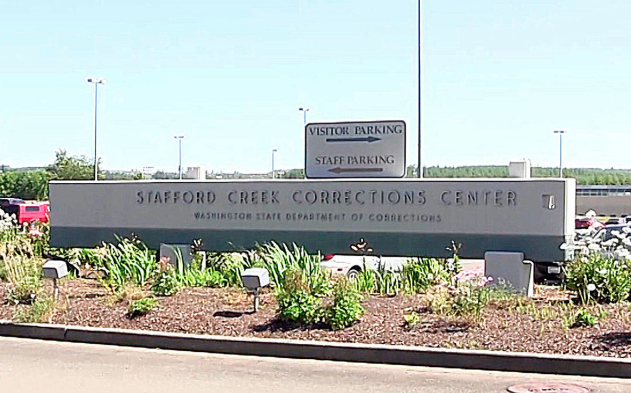
by Melissa Bee | Mar 10, 2021 | From the Inside
We’ve heard a few stories about how prisons use Covid as an excuse to enhance punishment of their charges. We received this letter from the mother of a person incarcerated at Stafford Creek Corrections Center in Washington Department of Corrections. We have reported this to the Office of the Corrections Ombuds, Washington State Representative Roger Goodman, and Washington State Senator Jeannie Darneille.
My son is an inmate at this facility. When they had their first deaths, my son’s pod was completely free of any known Covid patients. There are about 200 inmates in a pod. Gradually there were some positives and they were moved out to a different location .
They gave them a phone schedule for those times allowed out so I was still able to talk to him. As some of the inmates returned to the pod, there started to be some confusion. Soon they were taken back out of the pod and put to work cleaning the areas where those who tested positive were kept. They were still using the same pod as where they returned. Then the numbers started rising, the guards continued as though they, the guards, were not quarantined.
If you have IBS you are in pain the whole wait. If you can’t hold it then you have to go for a shower. My son had been given permission for at least a urinal bottle but was later told he did not qualify. They are now allowed only 25 minutes out of the cell a day and he can only call every other day.
It is completely inhuman to deny them access to water and toilets. These cells were not designed for a completely locked down situation. The facility does not return calls. I have no idea how to help him other than to try to at least maintain contact as much as possible. Thanks for listening.
<Name redacted>’s mom
The Pod he is in is a minimum security pod where bathrooms and showers are located in the day room. In a pod such as his, the doors to the cells are typically not locked, since access to a toilet is not possible otherwise. But Washington State prison officials apparently think that Covid is a good excuse to deny inmates access to showers and toilets, basic necessities that are their responsibility to provide, not when it is convenient for them, but all the time even if it is not convenient for them.

by Jacob (Justin) Gamet | Feb 23, 2021 | From the Inside
February 9, 2021
Today is special. It’s my late brother Nambi’s birthday.
Nambi struggled with drug addiction since he was about 13 y/o, and he unfortunately lost that battle last year on 5/18/20.
Nambi found pleasure in poetry, and I wanted to share with you his intimate poem – “This Life of Mine” – that metaphorizes his raw and uncut life and the demons he battled over the course of his prematurely abridged life.
Note, poet Amy McKenzie wrote a commemorative poem for him called “A Return to Kindness,” and Nambi’s poem (below) was featured as the capstone piece in an evening of poetry readings dedicated to African Americans.
==================
This Life of Mine
==================
All my hostility
Reflects my inability
To find peace and her sister tranquillity
Let alone my mental stability
Ain’t nobody feeling me or healing me
And it[‘]s killing me
For it’s a struggle in this life of mine
I was supposed to be blessed but the stress wasn’t hard to find
Worry came in a hurry
Success began to undress
She couldn’t cope
That b**** success lost all hope and hung herself from a rope
Desire… turned out to be a damn liar
Success confessed
With Ambition and Intuition
They met Conspire
Now it’s time to retire
Because together
That’s the three elements of fire
And what do you think about the possibility
Of using the ability of hostility
To bring back some tranquility
Which is required for peace
I don’t know cause Hostility uses Anger
And my muthaf***ing anger’s a beast
Because of the anger
People’s lives would be in danger
For Loss and Chaos are no longer a stranger
And the reason for all this mess is the concept of Success
And to this day I can’t understand why
That b**** challenged Failure to a game of chess
Inside I’m void
Too tired to be paranoid
Concepts of pain and neglect keep coming out the side of my neck
For inside my mind there’s too many mysteries to dissect
Too many pieces to this puzzle
And the voices I hear require a muzzle
And believe me from the fountain of peace
My soul requires a guzzle
There’s just too much frustration from the lack of communication
Which has led to withdraw[al from] social relation
Therefore masturbation
For it’s a lonely road to a[n] unseen destination
Now you understand all rage and fury behind my situation
Simplicity requires mastering well aspects of complication
And I thank the Lord Jesus Christ in heaven
For handing me my resignation.
–Nambi Gamet
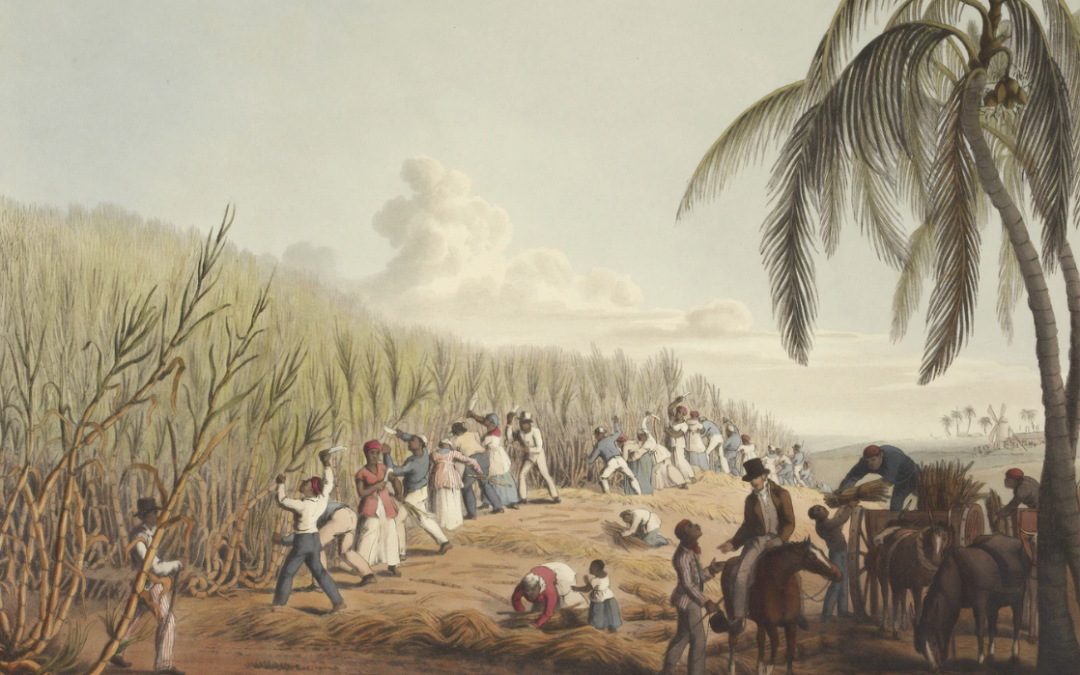
by Jacob (Justin) Gamet | Feb 18, 2021 | From the Inside, Poetry From Prison
Neither slavery nor involuntary servitude . . . except as punishment for a crime . . . shall exist.
–13th Amendment (1865), U.S. Constitution
YES, it’s true! The 13th Amendment of the U.S. Constitution still permits slavery for anyone convicted of a crime and imprisoned. Locked up now for over 17.5 years, I wrote “The 1865 Burden” as a poem to provide a behind-the-scenes peek at America’s 1865 slavery legacy — as it’s “being” applied in 2020 to me and other Washington state prisoners, and similarly to prisoners across the country.
The 1865 Burden
KNOW YE, future objects of vengeance
Your enslavement was decided in 1865
As criminals, you are Property of the State
HENCEFORTH, we authorize WA DOC to:
Strip away the dignity of your humanity
Assume control over your personal affairs
Yoke you tautly as fitting beasts of burden
Commoditize you by way of menial labor
Set a minimum grazing gratuity of 42¢/hr
Your day’s labor shall not exceed a meal tip
Lawfully deduct up to 95% of your monies
Of $100 from loved ones, pay you only $5
For 30+ years, deny cost OF living increases
Yet annually increase your costs FOR living
Ergo, increase your medical copay fees
Rec fees, and food and property prices
Feed you comestibles suitable for animals
Labeled, “Not fit for human consumption”
Offset budget cuts by reducing food quality
Supplement meals with pricey food packages
Provide offerings that exploit your loved ones
Design and benefit from the below offerings:
- Phone company contract kickbacks
- Deductions of money from loved ones
- Jpay media contract kickbacks
- Food and property program kickbacks
- Misusing the Offender Betterment Fund
Signed and executed by:
WE THE PEOPLE of 1865
Slavery Pacifists / Slave Owners
Photo by British Library on Unsplash
by Jacob (Justin) Gamet | Feb 8, 2021 | From the Inside
February 8, 2021
Negligence, n. 1. The failure to exercise the standard of care that a reasonably prudent person would have exercised in a similar situation any conduct that falls below the legal standard established to protect others against unreasonable risk of harm. 2. A tort grounded in this failure, usu. expressed in terms of the following elements: duty, breach of duty, causation, and damages.
As most incarcerated persons are aware, DOC, which includes WSRU, has a legal duty to protect them, i.e., ensure their safety. But WSRU has been negligent in fulfilling this duty, and I’ll explain how by comparing WSRU’s mismanagement of its current COVID-19 outbreak to mismanagement of a business, which would most certainly result in job terminations.
The Negligent GM
Let’s say you owned a business and assigned a general manager (GM) to run it, and the business began hemorrhaging money. What would you expect the GM to do? Personally, I’d expect the GM to investigate the crisis and implement a plan with solutions to slow my company’s financial losses.
Now say the GM decided to implement some minor adjustments to isolate the losses to an area of the business. Nonetheless, the company continued losing money at staggering rates, and the whole time the GM, hoping to ride the crisis out, sat on his hands.
The GM was contacted by a reasonably prudent company employee who detailed multiple viable solutions that could have saved the company, but the GM disregarded them. First, he denied receiving the solutions, and then failed to answer the employee’s second letter with solutions. So, the employee filed an official complaint against the GM in an effort to save the owner’s company and assets.
Still, the GM continued to sit on his hands, didn’t investigate the viability of the employee’s commonsense solutions, and eventually the other half of the owner’s company also went under.
Business Comparables
Company: WSRU
Company Owner: Governor Jay Inslee
Company GM: Superintendent Eric Jackson
Company Employee: Offender Jacob Gamet
Negligent Superintendent
Here at WSRU, a COVID-19 outbreak happened (and is currently happening on the other half of the prison, A/B units) that resulted in nearly half of WSRU’s offender population (C/D units) being infected.
Notably, before the outbreak there were about 10 bags of hand disinfectant dispersed around D-unit for offender use. All were removed prior to the outbreak!
Despite WSRU admin implementing modified (limited movement) lockdowns, offenders continued catching COVID-19 at steadily rising rates. It got so bad that offenders were being hauled out in groups of 60-plus at a time! Even though lives were being endangered, WSRU admin never investigated why positive cases continued rising if offenders were supposedly wearing masks. They sat on their hands and did nothing.
Then, I caught COVID-19 and was escorted with a group of offenders to ad-seg (the “hole”). I was befuddled as to how I caught the virus because I was hyper-vigilant in wearing my mask, washing my hands, and social distancing as best I could in WSRU’s congregate, communal environment where social distancing is impossible.
So, I sat back and thought about how I caught the virus, which didn’t take long. I discovered multiple points that I may have caught it. One, the tier showers where three stalls are situated next to each other and the two other offenders who showered in stalls next to me around the time of testing were hauled to the hole with me.
MY SUGGESTION: one person shower per tier during outbreaks.
Two, there are unit wall vents by the phones that blow strong gusts of air out of their sides and carry phone conversations well beyond the CDC’s 6-foot distance rule. There’s no plastic barriers installed between many of the phones situated next to each other.
MY SUGGESTION: prison unit staff regularly enforce the unit mask-wearing policy on offenders who pull their masks off or down while talking on phones.
Three, neither are prison unit staff regularly enforcing the unit’s mask-wearing policy on offenders who don’t wear their masks during TTY and Jpay kiosk video visits, which are situated in communal areas where other offenders congregate. There’s also wall vents in those areas which push offender saliva beyond the established 6-foot distance.
MY SUGGESTION: same as previous.
And four, WSRU has open bar cells, at which offenders stand at and yell from cell to cell, spreading their saliva into neighboring cells of unmasked offenders.
MY SUGGESTION: flame retardant plastic be used to cover cells bars around cell bunks.
I sent multiple letters to WSRU admin informing them of these unit breach points and suggested solutions (above) to them. They replied to my first kite, alleging it did not have the sealed and addressed envelope (w/ letter inside) I attached to it with Scotch tape. I sent a second with rubber bands attaching the envelope to the kite but received no response.
Finally, I sent an official grievance and am waiting for a response. But I’m concerned because A/B units have a nearly identical unit setup as C/D units, and so the offenders over there are now testing positive at similar rates that C/D units did. I’m concerned about their lives, and I wish WSRU admin shared my concern.
Is WSRU Enacting Herd Immunity?
After offenders caught COVID-19, WSRU medical staff told me and other offenders that we now have a 90-day immunity. Was this WSRU’s plan all along, to sit back, do nothing meaningful, and let us catch the virus?
Of course, a 90-immunity would seem more convenient than dealing with one outbreak after another. But such a decision would demonstrate a reckless disregard for offender lives.
While WSRU admin won’t admit to practicing “herd immunity,” their inaction begs to question whether offender lives were LESS important to them than a business losing ALL of its money.

by Jacob (Justin) Gamet | Feb 3, 2021 | From the Inside
I recently read this July 2020 article written by David Waldstein about whether racial slur words should be officially banned from Scrabble tournament play, and while some black Scrabble players want the ban, others do not. (There are supposedly 225 offensive terms on the chopping block.)
Proponents (those in favor) of the ban say words matter. Opponents disagree, one of which being Noel Livermore who says that he refuses to lose a game for not using a slur. If a word exists that will win him the game, he’ll use it. I surmise that he’s more of a “Sticks and stones may break my bones but words will never hurt me” kind of guy, which leads me to think he’s drinking his own Kool-Aid.
I don’t believe there’s any half-reasonable person who sincerely believes words don’t matter. In fact, Rudy Kipling once said, “Words are, of course, the most powerful drug used by mankind.”
If words didn’t matter, why then are people bedazzled by books, poets and playwrights? Why then do people spend hours and hours playing Scrabble? Furthermore, sociology and psychology have long established that the negative impacts of verbal abuse are far more damaging and last much longer than physical abuse.
A Scrabble player myself, I believe it’s obvious why Livermore wants to leave the slur words. I’ve played many guys like him. Unfortunately, they’re willing to win at all costs and by all means. They’re more interested in the accolades of winning than the impact words have on others. They’re egocentric and lack “Wintegrity” (i.e., grossly lacking in game-winning integrity).
When I play guys, sometimes there isn’t a dictionary handy to challenge one another’s words. So I tell them I’ll do my best to inform them on the correct and incorrect words. They look at me sideways and say why should I believe you? I tell them that I’m fallible, but also that I’d rather lose one game to them rather than raise doubts as to my winning reputation that took me years to build.
I literally caught guys cheating during games in just about every way imaginable. I never made a big deal out of it because I understand that the desire to win compels people to compromise their wintegrity. In fact, I see opponents’ cheating as a compliment to my stellar gameplay — I must be good if my opponent feels he or she has to cheat to win.
This issue is far from black and white. For example, John Chew, a nonblack chief executive of the National American Scrabble Players Association (NASPA), said he was told by black players that it wasn’t his fight. And John McWhorter, a black professor of linguistics at Columbia University, says the matter should be decided by Livermore and players like him.
But this issue CAN be decided by someone not black. Deciding this issue has more to do with rightness than blackness. McWhorter’s suggestion is patently erroneous because Livermore’s “blackness” doesn’t qualify him to speak for black people and how they feel. In addition, it’s clear that Livermore is an outlier, a one-off who speaks for himself and disregards the feelings and thoughts of the majority. Indeed, Livermore admitted that he once apologized to a woman for using a female slur but used it anyway to win.
I’m offended by McWhorter’s suggestion that Livermore (and black people like him), a self-centered player who is virtually devoid of wintegrity, should speak on behalf of black Scrabble players. Too often, we blindly assume that an expert’s mastery of one field constitutes his or her good judgment in another. It’s like assuming a psychologist makes excellent parenting decisions.
I’d rather have Chew decide the matter based on his internal rightness than Livermore decide it based on his external blackness. Although the matter makes considerations based on race and color, it doesn’t necessarily require the decision-maker or fact-trier to be a person of color. Judges and jurors — white, black, and otherwise — make just and equitable decisions regarding race and color all the time.
Chew needs to push back against the nonsensical deterrences of those who say it isn’t his fight. Undoubtedly, it’s his duty to ensure that NASPA respects the race and ethnicity of all Scrabble players. If it does not, then he should act swiftly and with full license to stamp out those shameful, offensive embers of the past.
Scrabble is not only a game. It’s also a crucible for testing the integrity of those who engage in a war of words and do so according to the rules of “ethical” engagement. How you win “always” dictates whether you ultimately win in the game of life.
#Wintegrity
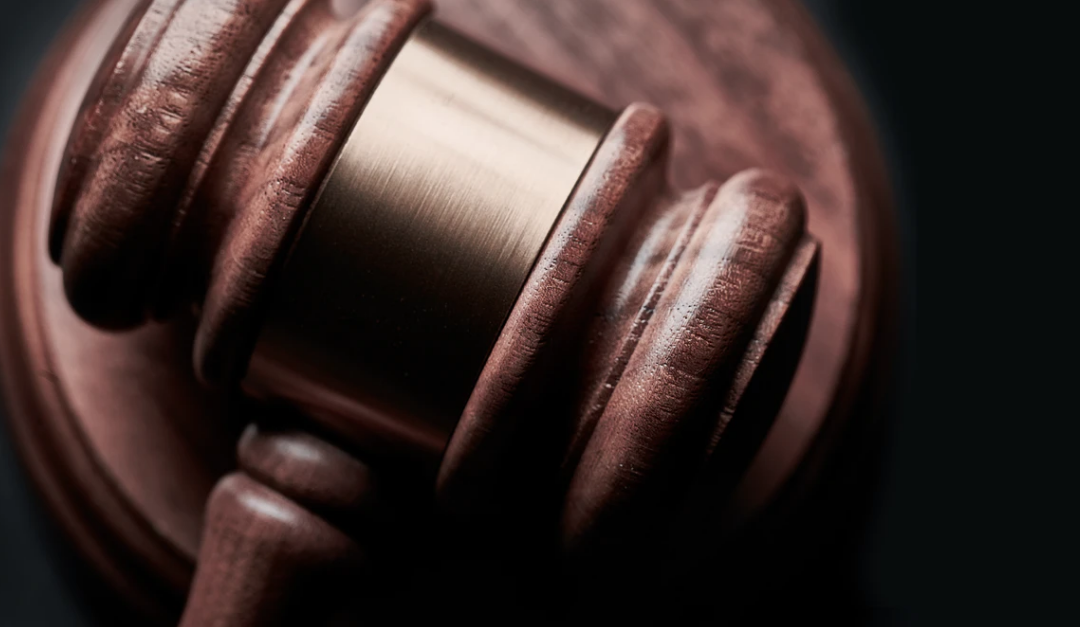
by Martin Lockett | Jan 30, 2021 | From the Inside
Time for Oregon to pull back on Measure 11’s mandatory minimums. An opinion piece by one of our featured writers, Martin Lockett in Oregon, published in The Oregonian.
Lockett is serving the final year of a 17-year sentence at Deer Ridge Correctional Institution in Madras.
Seventeen years ago, I drove drunk and crashed into a car that killed two people and injured another. I was 24.
At the time, I was working full-time and attending Portland Community College part-time. In full disclosure, I was no stranger to the law. I was finishing my final two months of post-prison supervision after serving three years for my part in a robbery when I was 19. Nonetheless, I had turned over a new leaf – until my troubled relationship with alcohol led me into the most catastrophic mistake one can make while intoxicated. My victims were in recovery themselves and to learn I had taken their lives was devastating.
While incarcerated, I focused on honoring my victims by doing all I could to help others who struggle with addiction. In order to do this, I knew I would need a formal education. I have earned a master’s degree in psychology and state certification as an alcohol and drug counselor. I have published two books and co-facilitated Mothers Against Drunk Driving-sponsored discussions with family members of those killed by drunk drivers at the Oregon State Correctional Institution. I produced a video of my story that is regularly shown at community panels. Moreover, I have never been written up for a transgression during my 17-year stay. I do not highlight these accomplishments to give myself a proverbial pat on the back but to say none of that will make a single day’s difference in my sentence. Like many others in Oregon’s prisons, I am serving a mandatory sentence which offers zero incentive to change.
My transformation was solely of my own doing, not because any mechanism in the system aided or encouraged it. My education was privately financed, and I was fortunate enough to land at the only prison in Oregon that enabled me to log clinical hours for certification. But I can assure you I am not an anomaly. There are countless others serving 10 – 30-year sentences under Measure 11 who are far different from their young drug-addicted selves who committed crimes decades ago. Yet they have no hope of returning to their communities anytime soon to offer them the benefit of their new knowledge. And while some take the opportunity to change, these lengthy sentences push many others even further into criminality. They know that violating institution rules won’t cost them their chance at a reduced sentence, because they aren’t eligible for it anyway.
I am deeply proud of how progressive Oregon can be when it comes to many things, most recently the decriminalization of possession of smaller quantities of drugs. Legislators also passed reforms to Measure 11 in 2019, recognizing how unfair and unproductive its heavy-handed treatment of juveniles was. Yet, the heart of this law, which dates back to the ’90s tough-on-crime, prison-building era persists.
Since then, many other states have rolled back their mandatory sentencing laws, having seen that harsh sentences don’t translate into safer communities. How is that Oregon still allows this outdated law to operate, needlessly locking up its citizens for decades at a time with no incentive to rehabilitate?
This is not a cry for anyone to feel sorry for me. I am still alive and my victims, sadly, are not. I will be released in June and will carry on with my life happily and productively. But this is not about me — it’s about our state. This is about all those who love Oregon and espouse compassion, particularly when it comes to the treatment of our neighbors. Are those who fall short not our neighbors and members of our communities? Are people deserving of second and third chances in rhetoric only? At what point do we demand our state lawmakers enact legislation that reflects these ideals and principles? When do we demand that our criminal justice system mirror the humanity and compassion we claim to value?
Laws are devised to hold offenders accountable and render justice for the victim. Yet, locking an offender up for 10 years with no incentive to change does neither. Justice can’t be delivered by a formula. And what amends are being made by someone locked in a cage for years, building anger at the system and waiting for their release to do what? Harm more people? When does it stop?
But when people have incentive to change by earning time off their sentence for completion of programs that are useful, chances are they will.
It is no longer 1995. The country has moved on from the tough-on-crime era. It is time for Oregon to catch up and rid itself of counterproductive mandatory minimum sentencing. When legislators convene next month, demand lawmakers take action on Measure 11 — finally.
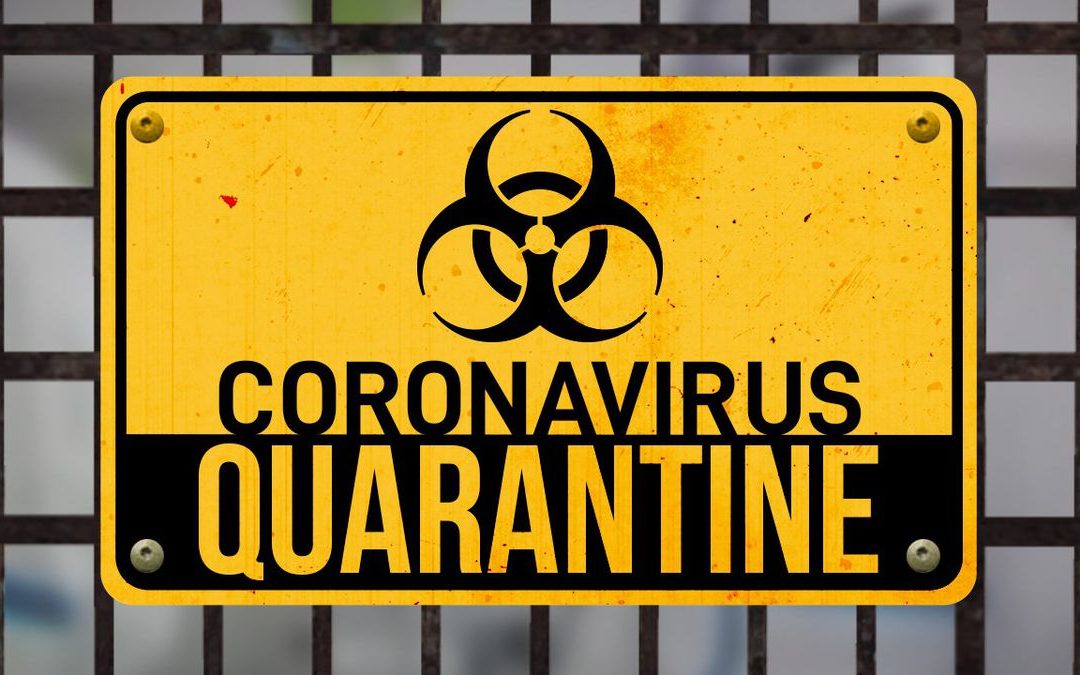
by Melissa Bee | Jan 29, 2021 | From the Inside
An update from our friend in WSRU in WA DOC – read his post Preparing for Quarantine that he wrote just before being moved. Today he was moved back to general population.
I’m doing great physically. I developed a sore throat (which became a slight cough) and rolling chills for a couple days. Otherwise, I didn’t have any breathing issues, didn’t lose my sense of smell or taste, no headaches, cramps, or other issues.
The section of the IMU I was housed for 7 days was actually comfy. It was spacious, had a 21″ flat screen with cable and a remote, the best mattress I’ve slept on in prison, and I got showers, clothes (t-shirt, boxers, socks, towel, and rag) and phones every other day.
But IMU living wasn’t so good for other guys elsewhere in the hole. One guy said he didn’t get a shower for 5 days. An elderly man tested positive, fell and hit his head and died in IMU. Another didn’t get medical treatment to change his colostomy bag for 6 hours and developed extreme stomach pains. The bag was used after he caught COVID-19. They didn’t get clean bedding or hepastat cleaner. They didn’t have TVs or electric outlets.
Five other guys were were lost after being housed in 3 Seg with probation violators. They reported black mold, freezing cold showers, being given 2 ounces of disinfectant (in a Dixie cup) to clean their cells for two weeks. One guy filed a medical emergency grievance for complications with COPD and asthma (needing inhalers) and staff returned it to him saying it didn’t constitute an emergency. A memo said the water was unsafe. So, they were given 1.05 pints of bottled water every 8 or more hours.
Two of the guys in 3 Seg tested positive, weren’t tracked, and were mistakenly transferred to A/B units and infected guys there.
Yeah, I’m in the gym with about 100+ guys living on cots. There’s some chairs and tables. It’s loud throughout the day, hard to sleep, and a pain to use one of two phones, which can take as long as 1.5 hours.
We don’t have WiFi, but I’m able to send and receive messages because there’s a section of the gym that has one bar of reception. We don’t have enough clothes so we’re hand washing our clothing and linen. Since we all tested positive, virtually everyone is NOT wearing a mask.
We have these portable Royal Restrooms (w/ nonpotable water) outside for showers and bathroom. They’re decent but some are tight on space. Some have half showers. We can watch one of about 20 DVD movies (on 3 TVs) and regular Cable TV (on 2 TVs).
One morbidly obese guy doesn’t have any extra clothing. He sleeps on the floor because the cot doesn’t support his weight. And numerous guys are being kept in the gym beyond the 20 days claimed by prison staff and prison medical staff. One guy was quarantined for 23 days.
These living conditions are cruel and inhumane. Many IMU and 3 Seg staff are apathetic to guys and ignore them, feed them lies and don’t follow through, and treat them like they’re being sanctioned for disciplinary reasons. This is in direct conflict with DOC’s memo that we’re not supposed to be treated like those for disciplinary reasons. But I say that they shouldn’t be treated that way anyway.
After being diligent in my mask wearing, hand washing, and other precautionary measures, I still caught COVID-19. I sent the WSRU superintendent a letter identifying 5 breaches in protection against COVID-19 and provided solutions to remedying them.
1. The showers are where guys de-mask and talk from stall to stall, infecting one another. A shower schedule is needed that limits showers to one person at a time.
2. The unit vents blow air further than 6 ft. and there are no barriers, especially because guys are not regularly monitored or told to put their masks on.
3. The open cell bars need plastic on them to prevent cell-to-cell spreading when guys stand at their cell bars and yell to other guys in other cells. Their airborne saliva transfers to neighboring cells of unmasked guys.
4. The TTY and Jpay video visit kiosks are where guys pull their masks off to talk while other guys stand in the area.
5. Porters are instructed to deliver ice and other things to unmasked guys locked in their cells, risking cross contamination.
WSRU and IMU administration, medical, and other staff have mismanaged the pandemic with flagrant negligence.

by Eric Burnham | Jan 25, 2021 | From the Inside, Uncategorized
Faith is the essence of being. Everyone has faith. Whether theistic, pantheistic, or atheistic, everyone believes in something, and faith perspectives stack exponentially. I mean, we must have faith in not only the legitimacy of our faith, but also how each perspective merges with another.That is, we must believe our faith perspectives are true, or ultimately we don’t believe them.
Personally, I am a Christ follower. I have faith in the accuracy and legitimacy of the biblical framework when effectively linked with common sense and married to scientific discoveries, revealing yet another layer: I have faith in the scientific method as well, believing that scientific inquiry and religious faith are not mutually exclusive but complementary. Faith solves philosophical problems that science cannot. The scientific method can only measure the physical world. Philosophy and theology attempt to interpret and explain those measurements. Faith, however, determines a person’s worldview based upon the subjective integration of available information from both science and philosophical or religious paradigms.
Faith can be difficult to define, but you know it when you see it. It is entirely peculiar, modified by one’s experiences and particular apprehension of reality. But basically it is a durable and enduring belief or trust is something or someone, right? However, the very capacity for faith is, in itself, evidence of a spiritual component within the human personality structure. Whatever you put your faith in will grow in your life. Faith is existential and inescapable, providing meaning and purpose while shaping one’s thoughts, goals, behaviors, and worldview. Yet the application of faith to everyday life is volitional, an act of the will. A person can know what should be done and still not do it, or know something should not be done and do it anyway. Regardless of one’s faith perspective, spiritual convictions can be either a blessing or a burden, a fountain of strength and perseverance or a pit of quicksand, pulling a person deeper into despair and self-loathing.
If a person has a conviction of faith, a genuine commitment to a moral value system but consistently fails to apply it or grow spiritually through an inability to apply it situationally, then he or she will feel inadequate, unworthy, and inferior on a deep, existential level. Over time, the pain of self-contempt will become endemic to the personality, part of the person’s identity, making it extremely difficult to shake at that point. Self-esteem is eroded, creating a sort of downward cycle of unworthiness, increasing the likelihood of failing to live up to the standards of one’s faith. And on the cycle goes, leading to insecurity, compromise, and defensiveness as a result of spiritual inauthenticity. The subsequent shallowness leads to felt emptiness and an ineffectual fulfillment of purpose.
On the other hand, when the principles of one’s faith are actively applied in ways that, albeit imperfectly, influence decisions and behaviors, feelings of self-respect and self-esteem increase, leading to spiritual empowerment. One feels the strength and authenticity of his or her faith. When a person lives out his or her beliefs, spiritual formation develops, and he or she experiences actualization of purpose, increasing opportunities to include faith paradigms in the decision-making process of one’s life. An upward cycle takes shape that expands worldview and faith perspectives through the accomplishment of growth objectives.
My faith, in conjunction with my education, has played a pivotal role in my personal transformation. My journey to life-changing faith in God’s existence and personal concern for me as an individual was certainly profound, but it did not break the laws of physics or include any strange hallucinations or visions. It occurred quite organically, actually.
In July of 2002, I was involved in a fist fight. I was taken to disciplinary segregation (the hole), and one day something happened. I was standing in the shower, and you need to understand that the showers in segregation are basically single-celled cages. It was dark, only a single, dim light in the center of the ceiling that revealed staggering filth. Hair and dirt lined the walls and used bars of soap and body fluids on the floor. I was disgusted. I felt like I was in the bowels of the earth, completely alone in that tiny cage. I knew it was my own poor decisions that put me there, and that only made it hurt worse. My soul was in profound pain, and I knew nobody cared. Nobody.
It was at that moment that I felt in my soul, in the deepest part of myself, the idea that I was worth more than the way I was living. It did not feel like my own inner voice or even a voice at all, just the idea, which was something I had not experienced before. Although inexplicable, it occurred to me that self-centered decisions will always lead to the dark places. I felt the incredibly strong conviction that if I continue to make myself the most important part of my story, then I would never be anything more than I was. I would never become the person I was designed to be. I felt a pull inside of me, telling me there is a better way to be. Yet, not only did I not know how to be any different than I had always been or how to make different decisions than I had always made. I had no idea who I was supposed to be, either. Discovering those things became a journey of faith over the next several years and continues today, and I am such a different man because of it.
I am certainly not trying to tell anyone what they should believe or how they should live. I have plenty of my own stuff to figure out, and I deeply value the idea of freedom to choose for oneself. After all, God gave us all the freedom to pursue Him or not, to believe or not. Who are human beings to take that away? I am only sharing some thoughts about my own understanding of faith and its importance in my life.
I am not claiming that I have arrived at this place of spiritual enlightenment that others have not. I’m not even trying to define enlightenment or what that looks like. What I am saying is that I have faith, and I know what I believe. My faith in the sinless life, atoning death, and bodily resurrection of Jesus of Nazareth, the Messiah, has made me a better, more empathetic, compassionate, and forgiving man, as well as provided me with a framework to move beyond my self-centeredness and even learn to forgive myself, which admittedly has not been easy, nor should it be, in my opinion.
Faith can fill the soul with joy and light. While convictions of truth may be uncomfortable or unpopular, they are foundations upon which personal growth is built. In moments of weakness and self-doubt, emotional exhaustion, identity crisis, profound grief, fear or pain, faith can guide us home. It can help us learn and understand who we are and even why we are. The key, I think, is to know, to really know what you believe. Otherwise, you cannot lean on that which you don’t really have a firm grasp.
I would encourage anyone who is lost in the chaos of contemporary times, of division and shallowness, whatever your faith perspective, live what you believe. Authenticity brings congruency and peace. Resist the lure of materialistic narcissism and hedonistic humanism that would have you believe that faith does not matter. We have been designed with a spiritual aspect that influences well-being in either positive or negative ways depending upon whether or not it is acknowledged and nourished. Find truth. Pursue it with your whole being and refuse to relinquish it. Find that balance between conviction of faith and love for those who believe differently. It is no sin to clutch your beliefs close to your breast with one hand while sifting through the thoughts, beliefs, and traditions of those who walked this earth before you with the other. Arrogance can lead to a closed mind that may miss unexpected insight. Life is too short. Don’t miss a thing.
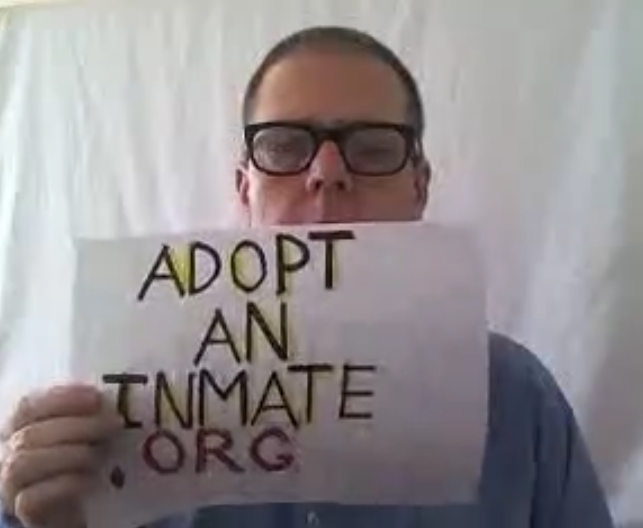
by Rick Fisk | Jan 20, 2021 | News
VENETA, Ore. – Jan. 20, 2021 – PRLog — For almost four years, Adopt An Inmate operated a website made possible by the donations of Washington State inmates seeking to help other inmates across the United States. Today it launches a major update and revamp of its site, again made possible by donations and support by inmates all over the U.S.
“We hope that people begin to change their perceptions about people in prison,” said Melissa Schmitt, She-EO and co-founder of Adopt an Inmate. “People are in prison for a variety of reasons, but those reasons are rarely, if ever, a good reason to label them inhuman, unworthy, or incapable of compassion and mercy.”
Since 2015, Adopt An Inmate has connected free individuals with over 1,600 people in prison, logged more than 19,000 volunteer hours, and received over 30,000 letters from people in prison, housed in over 1,000 prisons and jails across the country.
Adopt an Inmate was founded by a reluctant insider of the criminal justice system and his family, during an unexpected year-and-a-half stay in a Texas county jail. What began by delivering messages from inmates to their families who could not afford the cost of prison phone calls, grew into a larger effort to “adopt” indigent and forgotten inmates who have no support. After funding fell through for a new website in 2017, inmates in Washington State banded together to help raise the funds for the project. Now in 2021, prisoners in many states have sent in donations to launch an updated website.
Many prisoners are especially hard-hit by Covid-19. In most facilities, visitation has been closed since March of 2020, and many prisoners are ill and and forced into quarantine or isolation – making their contributions that much more impressive and appreciated.
This year, AI volunteers helped inmates in multiple states file and receive CARES Act stimulus checks. Several set aside some of the proceeds to help AI in return.
Much of the content of AI’s website is provided by people in prison and those who have been released, including AI’s executive director, who was released on parole in May of 2019.
Adoptaninmate.org features art and writing from prisoners all over the country – giving voice to thousands of forgotten human beings who are locked away with no agency. It also publishes the only state-by-state listing of correspondence and visitation rules. With no budget, no salaries, no dedicated office space, and a small army of angel volunteers, AI continues to process 300+ letters every week from male and female prisoners of every age, color, and creed, from every state in the nation.
Adopt An Inmate’s mission is to remind the world and those caught in the grip of the justice system that both accused and adjudicated are human, to provide relief, comfort, and hope to those facing judgement, and to help those sentenced emerge from prison whole, knowing they are part of a larger family that loves and cares for them. What began as one family’s story has grown into a dedicated community of angels on both sides of the prison walls, who share the same mission.
Visit https://adoptaninmate.org to volunteer as an adopter or as a helper behind the scenes.
Contact
Melissa Schmitt
***@adoptaninmate.org









